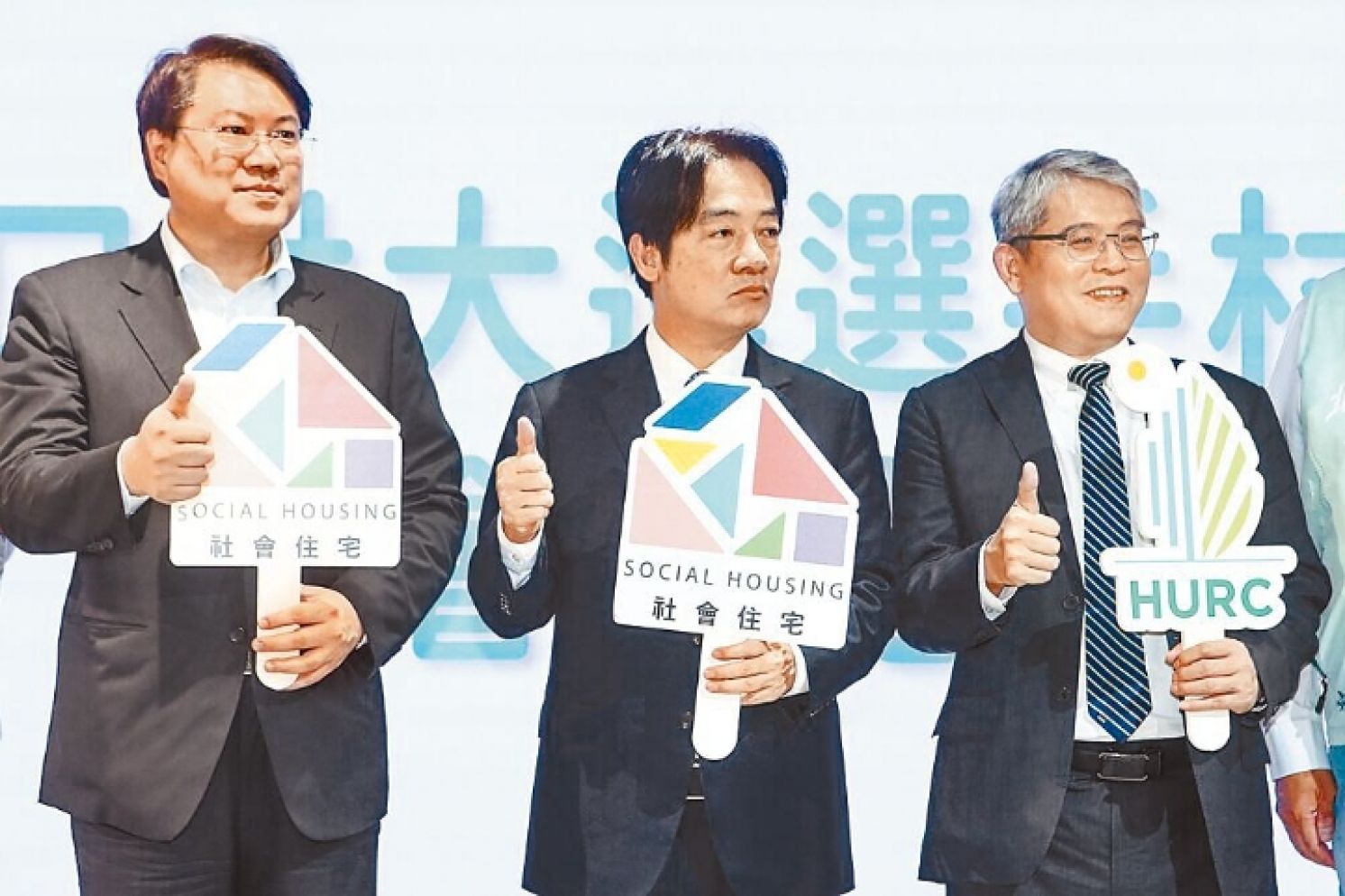
Housing Justice and Lai's Empty Promises
By Lee Ching-kuo
China Times, July 8, 2023
The Executive Yuan passed a new plan for differential house tax rates on July 6. This plan is the second measure released in less than a week to curb housing prices by the administration of President Tsai Ing-wen after the implementation of the “Equalization of Land Rights Act” on July 1. Such intensive policy releases in such a short period by the administration of President Tsai to curb house prices are unprecedented in the last seven years under the Democratic Progressive Party (DPP) rule.
However, is the Tsai administration really concerned about the issue of the so-called housing justice? In fact, people with a keen eye can see that the Executive Yuan’s new house tax plan is related to the rally on “Saving Taiwan with Fairness and Justice” that will take place on Ketagalan Boulevard this July 16. The themes of the rally are judicial reform and housing justice, and the presidential candidates of both Kuomintang (KMT) and Taiwan People’s Party (TPP) have decided to attend the rally.
DPP presidential candidate William Lai, who is also vice president and DPP chairman, has not shown his intent to attend the rally. The new tax plan by the Executive Yuan to curb house hoarding includes implementing the national reporting system and increasing the tax rate for people owning four or more uninhabited housing to a range of 2 to 4.8 percent. Mr. Lai declared that there will be 500,000 social housing units in 2032, and he also promised that rental subsidies will be provided to 500,000 housing units per year. The DPP later stated that the above policy and campaign promises are targeted at the housing needs of the young generation.
Support for Mr. Lai by the young people is low, and the majority of people who will attend the July 16 rally are expected to be young people, so it is not hard to see why the Executive Yuan and Mr. Lai have quickly declared housing policies to mend the insufficiencies and try to win the young generation over. But are these policies really helpful?
First, the tax rates on house hoarding are only declaratory as of now, they will not become effective until after the Legislative Yuan passes the amendments to the law. Many people are concerned that after the 2024 presidential and legislative elections, the relevant bills will be shelved. If the DPP administration thinks this is an important issue, why had they failed to propose amendments in the past seven years and only tried to do it last minute?
People are worried that landlords will increase rents to put the burden of the hoarding tax on the renters. Moreover, the new policy will increase the tax rates and not the tax base. If the local governments were to decrease the tax base, then the policy to curb housing speculation will have little effect or even be futile.
Mr. Lai’s “Three Arrows on Housing Policy” are all empty promises. When President Tsai assumed office in 2016, she also announced a three-arrow policy on housing justice. Her most important policy was to build 200,000 social housing units in eight years. But according to Legislator Wu Yi-ting, only 24,000 livable units were built in seven years, an implementation rate of 12 percent. Who believes Mr. Lai when he promised 500,000 social housing units by 2032? For rental subsidy, many renters will not benefit from this welfare if the problem of unreported rentals is not solved.
With the reins of political power, Mr. Lai has many policy tools under his disposal whenever there is a need. But can these hastily made policies really attract young people? President Tsai has already shown how her hollow policy has deceived people, so the young people will not be tricked by Mr. Lai’s empty promises!
(The writer is a senior journalist.)
From: https://www.chinatimes.com/newspapers/20230708000392-260109